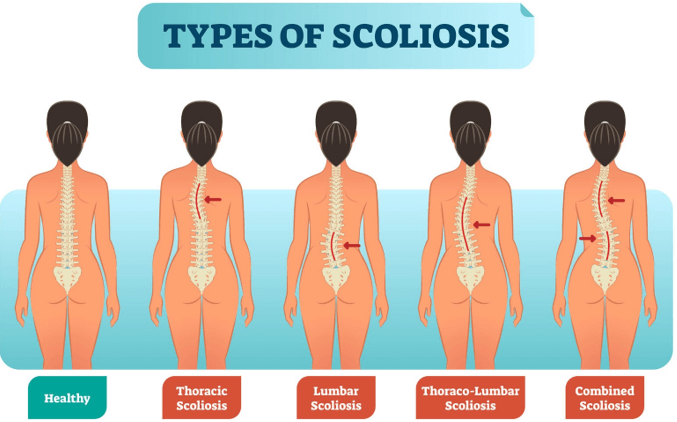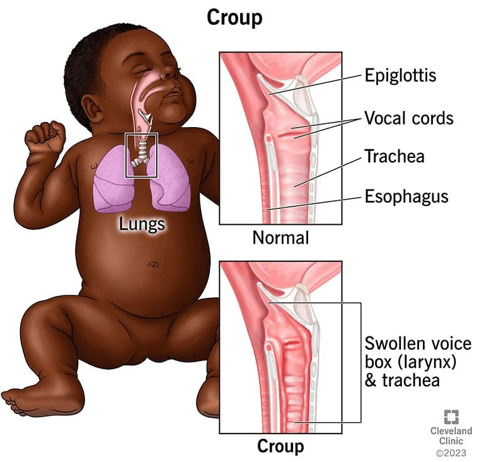The practical nurse (PN) plans to screen only high risk children for scoliosis. Which group of children should the PN screen?
High school boys.
High school girls.
Middle school boys.
Middle school girls.
The Correct Answer is D
This is the group of children that the PN should screen for scoliosis because they are at the highest risk of developing this condition. Scoliosis is a lateral curvature of the spine that usually occurs during the growth spurt before puberty. Girls are more likely than boys to have scoliosis, and the condition tends to worsen during adolescence.

Nursing Test Bank
Naxlex Comprehensive Predictor Exams
Related Questions
Correct Answer is C
Explanation
Croup is a respiratory infection that causes inflammation and narrowing of the airway, resulting in a barking cough, hoarseness, and stridor. The PN should monitor the child's oxygen saturation level via pulse oximetry, as it can indicate the severity of the airway obstruction and the need for supplemental oxygen or other interventions.

Correct Answer is B
Explanation
The Herpes zoster (shingles) vaccination is recommended for adults aged 60 years and older, regardless of whether they have had shingles or chicken pox before. The vaccine can reduce the risk of developing shingles and its complications, such as postherpetic neuralgia.
The other options are not correct because:
a. The vaccine is useful even if the person has had a case of shingles before, as shingles can recur in some people. The vaccine can prevent or reduce the severity of future episodes.
c. The person needs to get this vaccination even if they have had chicken pox, as shingles is caused by the reactivation of the same virus that causes chicken pox (varicella-zoster virus). The vaccine can boost the immunity against the virus and prevent it from reactivating.
d. The vaccination does not minimize outbreaks of cold sores, as cold sores are caused by a different virus (herpes simplex virus). The vaccine has no effect on this virus or its symptoms.
Whether you are a student looking to ace your exams or a practicing nurse seeking to enhance your expertise , our nursing education contents will empower you with the confidence and competence to make a difference in the lives of patients and become a respected leader in the healthcare field.
Visit Naxlex, invest in your future and unlock endless possibilities with our unparalleled nursing education contents today
Report Wrong Answer on the Current Question
Do you disagree with the answer? If yes, what is your expected answer? Explain.
Kindly be descriptive with the issue you are facing.
